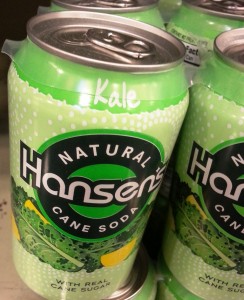I haven’t said much about raw milk in a while, but not because nothing is happening with it.
Tarini Parti writes in Politico that a bipartisan coalition of House members wants to end the long-standing ban on interstate marketing of raw milk.
Raw milk, Parti says, is “bringing together some of the most anti-government libertarians and left-leaning liberals.”
Politics makes strange bedfellows!
What unites them? Freedom of choice, of course.
“It’s nice to see that people are now advocating for their right rather than science,” said Baylen Linnekin, executive director of Keep Food Legal, a group that describes itself as “the first nationwide membership organization devoted to food freedom—the right of every American to grow, raise, produce, buy, sell, share, cook, eat, and drink the foods of their own choosing.”
In a statement on his two bills, Massie [Rep-KY], too, highlighted the right to choose argument. “Today, many people are paying more attention to the food they eat, what it contains, and how it is processed. Raw milk, which has been with us for thousands of years, is making a comeback among these discerning consumers,” he said. “Personal choices as basic as ‘what we feed our families’ should not be limited by the federal government.”
As for the pesky matter of science, take a look at Bill Marler’s website, Real Raw Milk Facts, where he collects:
As a reality check, take a look at the answer to the question, How many people get sick from raw milk compared to pasteurized milk?
But never mind all that. ProPolitico’s Morning Agriculture report (behind the paywall, alas) listed states that are working on bills to make it easier to get raw milk.
— California: AB 2505 was introduced Feb 21 and would allow dairies to sell or share raw milk from cows on that facility directly to consumers. The bill was referred to the House Committee on Agriculture March 13: http://bit.ly/1e16K5u
— Georgia: HB 718 would set requirements for the sale of “ungraded milk” to consumers as long as it is labeled: http://1.usa.gov/1af433N
— Hawaii: HB 1987 and its companion S 2562 would allow the distribution of raw milk as part of a cow share, goat share or sheep share program. The measure was approved by the House Agriculture Committee, Jan. 27, but the House Committee on Health, the next hurdle for the legislation, has deferred on taking up the bill. S 2562 has yet to see any committee action: http://1.usa.gov/1djbG47
— Iowa: SF 61 was carried over from 2013, and would put a moratorium on the enforcement of all state rules governing the sale of raw products, including produce, honey, nuts eggs and milk: http://bit.ly/1cJOujV. SF 2306, meanwhile, would allow for the sale of cheese produced from raw milk and details labeling requirements for the product: http://bit.ly/1mCTtbr.
— Louisiana: HB 247 seeks to allow the sale of raw milk and unpasteurized cheese on the farm where it has been produced, though it would require the milk be clearly labeled as raw and deny liability by the state or farm in the case of illnesses from consumption. The bill, filed Feb 20, also would prohibit advertising: http://1.usa.gov/1mkdPDj
— Maryland: SB 1092 was introduced Feb. 28 and would require producers of raw milk to have a written contract with consumers of the product and set up testing, safety and labeling requirements. It also would require producers to register with the state Department of Health and Mental Hygiene: http://1.usa.gov/1ptnqtf. However, HB 3, which would have allowed for the distribution of raw milk to a cow share or Community Supported Agriculture agreement member, was withdrawn March 24 after an unfavorable report by the Health and Government Operations Committee: http://1.usa.gov/1djegqR
— Massachusetts: HB 3857 would allow for the home delivery of raw milk to members of a cow share or a CSA agreement, and allow for farmers to sell raw milk from farm stands that are not on the site of where the milk is produced: http://1.usa.gov/1aSLUta
— Michigan: HB 5336 would prohibit federal regulation of any food, including raw milk, that is produced and then sold in the state: http://1.usa.gov/1fCGgaQ
— New Jersey: AB 543 would create a permitting program to allow farmers to sell raw milk, though only on the property where the milk is produced. The bill also seeks to set up testing requirement, storage temperature requirements and would mandate warning labels: http://bit.ly/1fmdbRv
— New Jersey: S 1285 would permit the sale of raw milk and milk products to individuals and retail stores and sets inspection and testing standards, in addition to requiring that producers do not use growth hormones on the cows: http://bit.ly/1pEsMjO
— Oklahoma: HB 2595 would amend the state’s Milk and Milk Products Act to ensure it does not prohibit the sale of raw milk. The measure would take effect Nov. 1, 2014: http://bit.ly/1oeBgTo
— Rhode Island: S 2224 would require the state’s milk commission to establish rules for the sale of raw milk, but the Senate Health and Human Services Committee recommended the bill be held for further study on March 11: http://bit.ly/1fAIQk2
— South Dakota: SB 126 would have created an exemption from state laws governing dairy products for raw milk that is packaged on the farm where it is produced and sold by the farmer, but the measure was tabled Feb. 21 by the Senate Health and Human Services Committee in a 5-1 vote: http://1.usa.gov/1bhvrt4
— West Virginia: HB4274 would have permitted the sale of raw milk in the state as of Jan. 1, 2015, and HB 4273 would have allowed for participants in cow share programs to receive raw milk. However, the bills did not make it to a vote before the West Virginia legislative session ended, March 14: http://bit.ly/1lunSck and here: http://bit.ly/1bQGUQj
How’s that for an impressive list.



